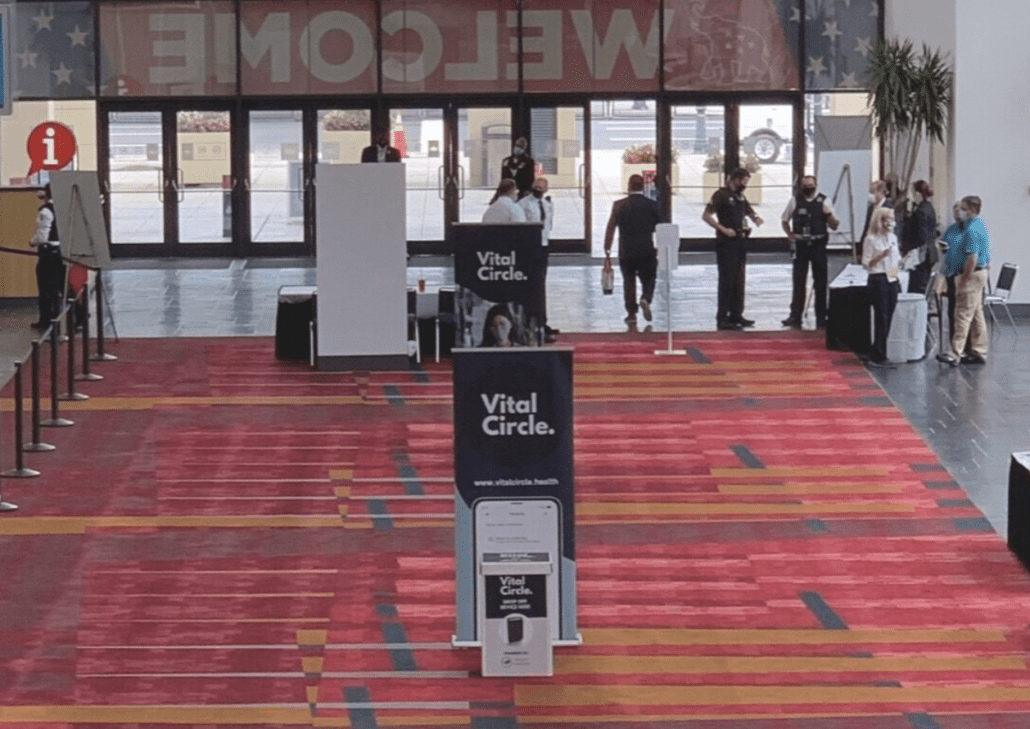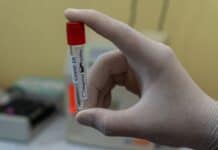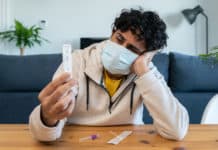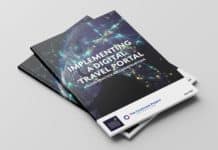 Omicron, vaccines, testing and events — who knew these words would have become such staples in the lives and work of event and meeting planners? And yet, here we are, mid-January 2022: the Omicron variant is causing an all-time high in COVID-19 cases of 800,000 per day, and the U.S. Surgeon General Vivek Murthy is warning that the worst is not yet behind us in this latest surge.
Omicron, vaccines, testing and events — who knew these words would have become such staples in the lives and work of event and meeting planners? And yet, here we are, mid-January 2022: the Omicron variant is causing an all-time high in COVID-19 cases of 800,000 per day, and the U.S. Surgeon General Vivek Murthy is warning that the worst is not yet behind us in this latest surge.
“The challenge is that the entire country is not moving at the same pace,” Murthy said on CNN’s “State of the Union.” “The Omicron wave started later in other parts of the country. We shouldn’t expect a national peak in the coming days.” She added that we should expect the next few weeks to be “tough.”
Though the COVID situation varies from country to country, the news is not much better in other parts of the world, as China stops selling tickets to the Winter Olympic games to members of the Chinese public, Paris police are ordering everyone to wear masks in crowded outdoor areas, and Austria announces plans to start fining those who refuse to be vaccinated in March.
But how is this ever-shifting COVID landscape affecting in-person events? Prevue asked Becky Fox, Founder of Vital Circle Health to share what she is seeing now from her event clients who request her company’s vaccine verification, testing and health and safety technology and services.
Prevue: What are you seeing now in terms of demand for your services?

Fox: Demand is still on the rise because people still want to get together, but they want to do it in a safe way. As long as there is COVID, there is going to be a continuing need to mitigate the risk so event organizers can keep people as safe as possible while still being able to accomplish their goals for meeting in person.
Prevue: What are some of the most common requests you are getting from event organizers? Testing? Vaccine verification? Masking? Health checks? Contact tracing?
Fox: We get requests for all of the above. The dynamics tend to change on the location of the event, where the attendees are coming from, and even the venue itself, which may have its own rules that must be adhered to. For example, if the event is being held outdoors, they don’t need as many risk management services, but if it’s a large event being held indoors, they need to do more in terms of risk mitigation.
Discussion points that come up regularly involve everything from pre-event testing, on-site testing, clinical support, even just a consult on what protocols to take if someone tests positive for COVID while on site. We also are asked a lot about whether vaccine requirements may include boosters in the future, which is something we see may evolve over the next three to six months.
Prevue: Have you seen any changes in the past two months in what event organizers are doing for COVID monitoring/protocols as Omicron began to cause a rise in infections?
Fox: The biggest change we’re seeing is an increase in demand for testing. However, even people who have been vaccinated and boosted can get a breakthrough case, so the safest thing you as an event organizer can do is to ensure everyone is tested before they come to an event, especially for events that have a large number of people coming in from across the U.S. or even internationally. Our number-one request right now is to provide tests people can take at home before they leave for the event to screen out those who may, even unbeknownst to themselves, be positive for COVID.
We also have a lot of requests to do on-site testing, especially for smaller, more local events that are usually held at smaller venues. Some want us to do both at-home and on-site testing, especially for smaller, executive-level corporate events where attendees will be in close proximity to each other so they want to create a bubble. Some want to do daily testing of their staff as well as the attendees.
As for vaccine verification services, it’s probably about a 50/50 split right now between those who require vaccination and those who do not. Again, it really depends on the clientele and the location, for example if the venue requires all to be vaccinated to enter. Clients can have attendees load their test results and/or vaccine verification directly to our web-enabled application, where it is verified by our team to ensure no information is missing.
The main thing clients want is for everyone to feel as safe as possible coming to the event because they know that everyone was vaccinated and/or tested. There’s always a risk any time anyone ventures out into the world, but they can feel safer knowing that the event organizers have put risk mitigation initiatives in place and are keeping their safety top of mind.
A number of clients also are using the contact tracing services we provide, which I think of as the secret sauce. No one wants to have to download something to their phone or invade their personal space. Our contract tracing service uses a wearable device attached to the event badge. It does not track individuals’ location via GPS, but it does track each person’s contacts over the course of the event so if someone does come up positive after the event, we can go back to the event organizer and let them know the individuals that person was within six feet of for more than an hour. That way, the event organizer knows exactly who to focus their risk mitigation efforts on out of the 1,000 people who were at that event.
It’s also important to ensure whoever you are working with to plan your event has clinical expertise to ensure the plans you are putting in place are based on the ever-changing science, data and research. COVID-19 is more than likely going to be here for some time, but it will be in a state of change, and you’ll want to ensure your client’s plans are based upon the latest and greatest scientific information.
I’m a clinician — a nurse — and also have worked in informatics for more than 20 years and I’m passionate about how we can use technology to make our lives better in a non-invasive way, and our contract-tracing service checks these boxes. It has been used since the Republican National Convention back at the beginning of the pandemic, where we were able to help the event continue without disruption even when an issue arose. You don’t need to shut down the entire event if two people come down with COVID but never interacted with 90% of your attendees. And we purge the information after a designated length of time — we do not retain it or use it for any other purpose than to help people get together in a safer way.
Prevue: Any predictions for what we can expect in the next month or two, and what precautions event organizers should be taking to minimize health risks for attendees as we continue to manage meetings during the pandemic?
Fox: What we’re seeing when we look at the data from across the U.S. is that COVID continues in waves and peaks and valleys. With Omicron, we’re currently in an uptick that is likely to peak in early to mid-February, with variations depending on where you are in the country — but that could change depending on any number of factors. Clients right now are planning to go ahead with events scheduled for the next downturn, which probably will be in the February/March/April timeframe. They’re putting safety measures in place and are planning well ahead of time so they can go forward and have a great event.
Prevue: Any other observations you have regarding the current state of the pandemic and in-person events being held now?
Fox: What I’ve found most enlightening is to see how much attendees value their planners’ ability to safely hold an event during COVID. I’m appreciative of being able to work with great event planners who are doing all they can to ensure their events are being held as safely as possible.
I mentioned boosters earlier — we’re already expecting that boosters will probably need to be collected along with vaccine information, so we’ve already planned for that in our technology. We want to stay one step ahead and partner with event planners who also want to stay one step ahead.
While we do get some questions on the front end about why attendees have to provide vaccine information ahead of time, but what we hear at the back end after the event is, “I am so glad the event planners thought of putting these extra measures in place.” This is especially true when it comes to providing on-site PCR tests for those who need a negative test to travel back home, which can be a challenge. Our goal is to mitigate risks, make the event safer, and make it easy for attendees, whether that means mailing a test kit to attendees’ homes pre-vent or providing a PCR test on site.
There’s every reason to believe this is going to be a great year for events. People are ready to get back to meeting together in great cities, and we have the means now to do it as safely as possible. It’s exciting to be able to be a part of that.
You May Also Be Interested In…
New Study Reveals Changing Meetings Landscape
How Omicron is Affecting Early 2022 Events
3 Strategies for Meeting in States with Vaccine Mandate Laws











